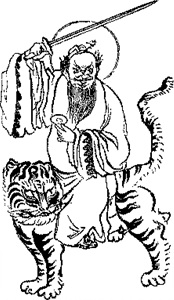 영어토론방 영어토론방 | Home>영어토론방 |
Culture Nationalism in sports
페이지 정보

본문
 As most sports fans know by now, Korean woman golfers have become a dominating force on the Ladies Professional Golf Association (LPGA) circuit in the United States. They were doing so well that no less than five Korean golfers finished in the top 10 in the Kraft Nabisco Championship the weekend before last with Grace Park winning the title.
As most sports fans know by now, Korean woman golfers have become a dominating force on the Ladies Professional Golf Association (LPGA) circuit in the United States. They were doing so well that no less than five Korean golfers finished in the top 10 in the Kraft Nabisco Championship the weekend before last with Grace Park winning the title. Many American and other foreign players and LPGA officials as well as ordinary American golf fans were reported to be amazed by so many qualified Korean golfers in the LPGA. But as far as I could determine, there has not been any public expressions of dismay or resentment over the lopsided inroad of Korean golfers.
This proves that in professional sports, there is no discrimination based on the differences of race or nationality in America. As long as you are qualified and as long as you are willing to play by the rules of the game, you are welcome to compete, regardless of who or what you are. And fans applaud and admire you, if you are really good, regardless of the color of your skin or the language you speak. This, I think, is the spirit of professional sports in America in recent years.
In Japan, sumo wrestling is the most tradition-bound sport with players and referees, judges and other officials following a set of rigid ritualized rules and manners. Yet, sumo today has accepted foreigners from such diverse countries as the United States, Mongolia, Argentina and South Korea. And a couple of Hawaiians, followed by a Mongolian, have reached the top of the heap, becoming grand champions, in recent years.
Watching the latest 15-day spring tournament in Osaka, western Japan, on television, I was impressed by the enthusiastic support and admiration expressed by Japanese fans for the reigning Mongolian Grand Champion Asashoryu, who won the Emperor`s Cup in two seasonal tournaments in a row. Even the Japanese, who can be pretty parochial and nationalistic in sporting events, are fair and open minded enough to accept foreigners without discrimination into their traditional game and treat them equally with the Japanese.
In sharp contrast, we Koreans tend to set foreign entries or foreign players apart in Korean sports and keep them as outsiders for as long as we possibly can. A case in point occurred in the High School Relay Marathon held in Gyeongju two weeks ago. Although it wasn`t a professional event, boys and girls teams from high schools in Japan and China were invited to compete in the race. They were apparently much better than their Korean counterparts. For they finished the race far ahead of the best Korean teams. And yet, in reporting on the results of the race the next day, not a single newspaper mentioned the Japanese and Chinese teams in their articles.
What counted for the Korean reporters was, no doubt, how the Korean high school teams fared. But as long as we invited the foreign teams to compete in the race, they should have also reported on their performance as well, especially when the Korean teams could not put up a close race against them. The relatively poor performance of the Korean teams hurt our pride and that, obviously, was why we consciously or unconsciously tried to ignore the foreign entries and their records. But we have to know our opponents if we want to catch up with them and eventually beat them.
That is not all. When the annual season winds down, attention is centered around who are going to be the best players in various categories of a given sport, like the top scorer in soccer and basketball, the best three-point shooter in basketball, or the leading home-run hitter in baseball and so on. And when a Korean is in a close race against a foreigner for such an honor, Korean players on the same team as well as members of the opponent team, believe it or not, do their best to help the Korean player come out ahead of the "foreign mercenary." They feed the ball almost exclusively to the Korean player or create a good opening for him to score, so that he will become the best player of the year, beating the foreign competitor.
Such a nationalistic sentiment and fanatical support for a Korean team or individual players is never harmless because it reflects poor sportsmanship and gives a bad example to our children who need to be taught to function in an increasingly globalized world. In addition, we only hurt ourselves when we are too narrow-minded and biased against non-Korean players, especially in professional sports, because, as I said, it often is the foreign players who help us improve the game or let us know where our players stand in international arenas.
**For your tips**
nationalism: 애국주의 (public spirit:나쁜 의미의 애국주의)
foreign mercenary: 입신양명
Question
1. What is your definition of nationalism?
2. Give us some examples that Korea overly stresses nationalism in sports.
3. What is your opinion on discrimination against foreign sports team or player in Korea?
4. How can we make a fair and ideal environment for sports?
이 글은「대학연합영어토론동아리」www.pioneerclub.com에서 제공하는 영어토론 정보입니다.
댓글목록
등록된 댓글이 없습니다.

